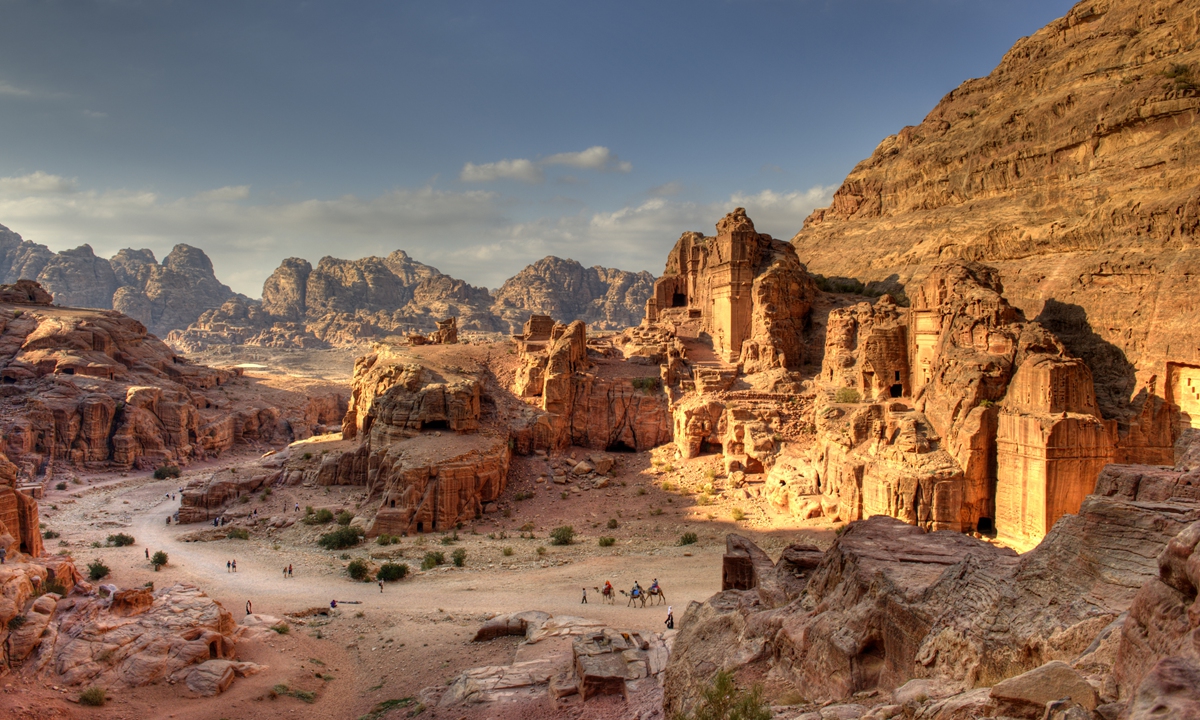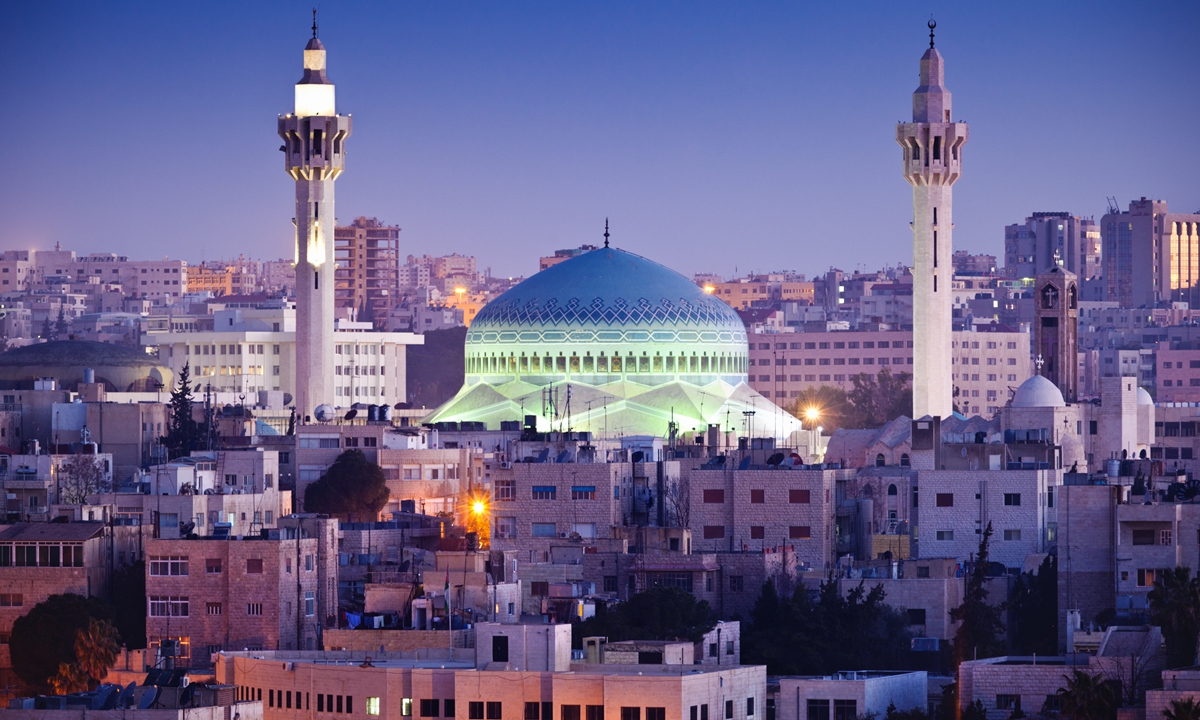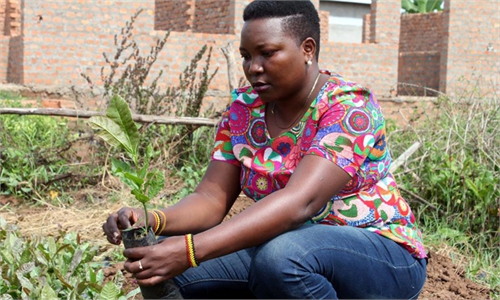ARTS / CULTURE & LEISURE
COVID-19 worry remains as Eid al-Adha holiday boosts Jordan’s domestic businesses

Photo: VCG

Dome building in Jordan Photo: AFP
The recent Eid al-Adha holiday has boosted Jordan's domestic tourism and businesses, but health experts warned of the consequences of people's non-compliance with public health measures.Jordanians celebrated in the past week the annual Eid al-Adha, or feast of sacrifice, which came as the government eased the COVID-19 restrictions to allow almost all businesses and economic sectors to operate.
The relaxed measures witnessed a wave of released demands for businesses and domestic tours, especially during the traditional holiday for family gatherings.
Khalil Tawfiq, chairman of Amman Chamber of Commerce, said on Saturday that some sectors, such as restaurants and sweet shops, experienced an increase in demand during the holiday, though still lower than previous years before the pandemic. "The pandemic has affected citizens' purchasing power significantly and exacerbated pre-existing issues such as unemployment," he said.
Also, Commissioner for Economic Affairs in the Aqaba Special Economic Zone Sharhabeel Madi said reservations of hotels in the Red Sea port city of Aqaba stood around 80 percent during the Eid al-Adha holiday.
In a statement published by the state-run Petra news agency on Saturday, he said that more than 50,000 people visited Aqaba throughout the holiday.
Mohammad Alsheekh, an economist in Jordan, said the holiday was a good season for domestic tourism and businesses that suffered heavy losses during the pandemic.
"Restaurants were full. Businesses have been waiting for this holiday ... Many people were unable to travel abroad, so local tourist attractions such as Aqaba and the Dead Sea witnessed a flow of visitors," he told Xinhua, adding that a balance is needed to protect businesses and public health.
"It was also unfortunate to see many people completely ignoring wearing masks," he said.
Bassam Hijjawi, a member of the National Epidemics Committee, criticized the non-compliance of citizens with the public health measures during the holiday, as the government had called on people to avoid gatherings and abide by safety protocols.
In an interview with the state-owned Al-Mamlaka TV, the official warned that there had been no commitment at all during the holiday to the required health measures.
The official mentioned a rise in the number of COVID-19 cases over the past weeks, and the consequences of not complying with public health measures would be evident in the next 14 days. "There have been scenes of people not wearing masks at all ... Many people visited each other and attended weddings without following health measures," Hijjawi said.
Mohammad Addeeb, a medical advisor at a private hospital in Amman, said COVID-19 cases along with ICU admissions, in particular, have been rising.
"The situation is very worrying," he said, noting that more cases will probably be reported two weeks after the holiday.



